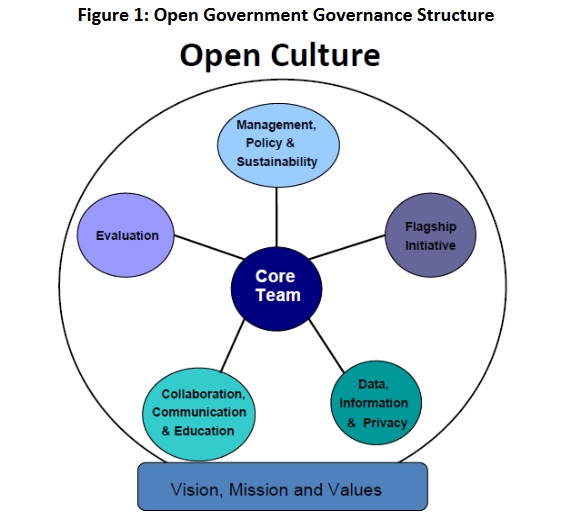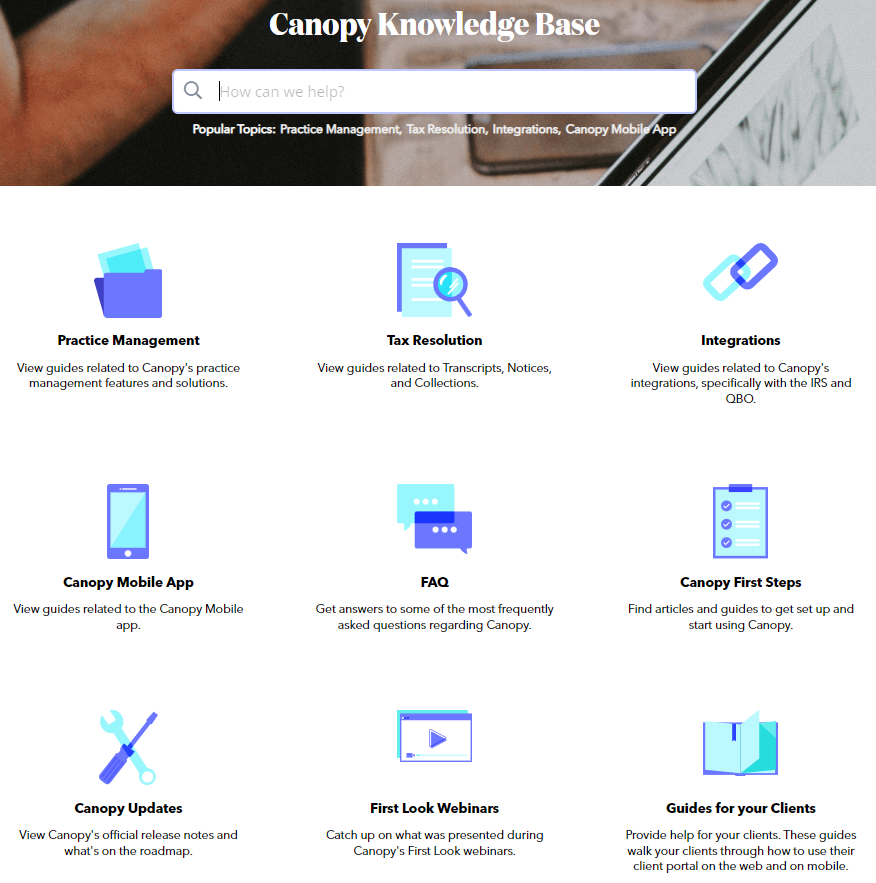Knowledge is power. This adage holds more than just universal truth - it bears unique significance for federal employees navigating the multifaceted operations of government agencies. Behind every policy, procedure, and decision within these agencies, a wealth of accumulated knowledge underpins each step.
Enter the compelling realm of knowledge management (KM) in federal agencies.
Consider this: You're a dedicated federal employee, poised at the start of a challenging project. You’re cognizant that somewhere within your extensive organization, someone has likely encountered a similar situation. Wouldn't it be advantageous to access their experiences and insights to inform your current endeavor? Envision a system designed to facilitate exactly this kind of information sharing - this is the essence of knowledge management in action.
The Need for Knowledge Management
Understanding KM is not an academic exercise but a practical necessity. A study by McKinsey Global Institute revealed that employees spend nearly 20% of their work week looking for internal information or tracking down colleagues who can help with specific tasks. This illustrates the potential value of effective KM – if this time could be saved, think of how productivity could increase!
The Struggle of Information Overload and Duplication
In today's digital age, we face an intriguing paradox: As we're inundated with information through cloud-based applications, locating the precise information when we need it most proves an enduring challenge. This predicament gains an added layer of complexity for federal employees, many of whom are navigating the nuances of remote or hybrid work models. A recent survey from Federal News Network reveals an enlightening statistic: approximately 60% of federal employees now function within a hybrid work environment, and another 33% are completely remote.
This seismic shift in work culture amplifies the struggle to manage and utilize information effectively, placing a spotlight on the crucial role of efficient knowledge management. According to a study by Elastic, an open-source search company, 85% of respondents admitted to spending a considerable amount of time searching for documents throughout the workday, and 60% stated that they waste more time hunting for information than replying to email.

Moreover, a report by Asana showed that employees spend over an astounding 10% of their time duplicating work within a company. These figures underscore the pressing need for efficient knowledge management.
These figures underscore the pressing need for efficient knowledge management. This process involves the systematic capture, distribution, and effective use of knowledge within an organization. In the context of federal agencies, with their distributed workforces and complex operations, KM is about harnessing the power of institutional knowledge. This is crucial in overcoming the challenges posed by high personnel turnover, departmental silos, and the complexity of the knowledge itself, all exacerbated in a remote work environment.
The Bigger Picture: Knowledge Management in Federal Agencies
For federal agencies, the mandate should be to generate new knowledge and then disseminate it to the public. As pointed out in How the Government Gets KM Wrong by Zach Wahl, “be it regulatory agencies like the IRS, FDA, or EPA, or research-centric agencies such as NSF, DOE, or NASA, or standards agencies like NIST, OSHA, and the FCC, knowledge creation, management, and sharing are critical for mission success. This means that to operate effectively, these agencies need to harness the full spectrum of their knowledge and serve it to their stakeholders, including the U.S. public, intuitively and consistently.”
The U.S. Office of Personnel Management (OPM) has taken decisive steps to create a more transparent, participatory, and collaborative form of government. As per OPM's Learning and Knowledge Sharing Strategy (LKSS), knowledge sharing is vital to OPM's mission to "recruit, retain and honor a world-class workforce to serve the American people."

Despite these steps, OPM, and by extension, many federal agencies face substantial challenges in generating, storing, accessing, retrieving, managing, and sharing knowledge and knowledge resources. Such limitations impair the ability of agencies to collaborate effectively internally, as well as with other agencies and the public.
Holistic Knowledge Management: A Five-Faceted Framework
For KM to truly be effective, it’s important to build a knowledge management framework that includes People, Processes, Content, Culture, and Technology:
- People: Identifying knowledge holders, the people who need knowledge, and facilitating knowledge transfer between them.
- Process: Instituting policies, procedures, roles, and responsibilities governing the capture, management, and maintenance of knowledge and information.
- Content: Managing the full breadth of an organization’s knowledge, information, and data, both structured and unstructured.
- Culture: Fostering a culture that encourages continuous learning, backed by leadership support and individual willingness to share their knowledge.
- Technology: Employing KM systems that include centralized knowledge repositories, collaboration tools, data repositories, and more.
The Impact of Holistic Knowledge Management on Government
By approaching KM holistically, federal agencies can address significant challenges such as:
- Improved Human Resources and Labor Relations: An environment where knowledge is well-managed and shared fosters a sense of value and connection among employees, leading to improved morale, more effective conflict resolution, and enhanced retention rates.
- Improved Collaboration and Cooperation: Knowledge management encourages collaboration by connecting people with knowledge to those who need it. This can strengthen inter-agency cooperation, facilitating more unified and coordinated responses to national issues.
- Risk Management: Effective KM can help identify and address potential risks or vulnerabilities in an organization's strategies and operations. By facilitating a comprehensive view of past actions and their outcomes, it enables agencies to proactively manage risks.
- Better Public Services: Ultimately, improved knowledge management equates to better public services. It enables agencies to make more informed decisions, respond to issues more quickly and effectively, and continuously improve through lessons learned.
- Enhanced Decision-Making: A well-established KM system will ensure that all pertinent knowledge is readily available to those who need it, when they need it. This facilitates informed decision-making, leading to more effective and efficient operations. For federal employees who are often tasked with making significant decisions that impact public lives and resources, this is invaluable.
Demystifying Knowledge Management in Practice
While the advantages of KM are evident, its implementation can often seem daunting. Here are some actionable steps you can take to engage with KM in your role as a federal employee:
- Identify and Capture Knowledge: Encourage a culture of documenting and sharing insights within your team. This could range from keeping records of key decisions to creating a repository of lessons learned from different projects.
- Create Opportunities for Learning and Collaboration: Regular team meetings, inter-departmental workshops, and learning sessions can serve as platforms for knowledge exchange.
- Leverage Technology: Tools like knowledge management portals, intranet platforms, knowledge base software, shared databases, and collaboration platforms can greatly facilitate knowledge capture and sharing.
Communities of Practice: Connecting Knowledge Management Practitioners
Communities of practice are groups of people who share a common interest, profession, or passion and actively engage in sharing insights and continuous learning from each other. In the context of federal agencies, these communities play a pivotal role in promoting KM practices.
An example of such a community is the Federal Knowledge Management Community (FKMC). Founded in 2010 by a group of practitioners from the Department of Defense (DOD), Federal Bureau of Investigation (FBI), and U.S. Secret Service (USSS), the FKMC is a vibrant volunteer organization with over 300 members from more than 40 U.S. government agencies.

Members of FKMC engage in an active community of practice on apan.org, the DOD’s premier unclassified information sharing and collaboration enterprise. FKMC's mission is to bring knowledge managers together to discuss, collaborate and support the people, process, culture, and technology needed to advance knowledge management endeavors throughout the federal government. Communities of practice are also widely used in the nonprofit sector, where they help organizations share resources, strengthen collaboration, and improve impact. You can learn more about their role in nonprofits.
Joining FKMC provides current and prospective KM practitioners in the federal government with opportunities to learn from one another, showcase their KM practices, and discover other best and emerging practices. FKMC works continuously to bring best and emerging knowledge practices to benefit practitioners and leaders of the federal workplace.
(Note: If you are interested in joining the FKMC, or learning more about its work, you can find more information on the Federal Knowledge Community Membership page).
The Call to Action: Make Knowledge Management Your Government's Ultimate Ally
In the ever-evolving landscape of federal employment, standing on the shoulders of giants – those who've tread the path before you – can make a world of difference in your career trajectory. KM is more than an organizational tool; it’s a personal compass, guiding you through the labyrinth of your federal career journey.
But remember, knowledge management is a two-way street. As much as you learn, there's always someone who can learn from you. Share your experiences, insights, and lessons learned. In doing so, you become a part of the vast knowledge network, shaping the future of federal service, one piece of knowledge at a time.
Knowledge management in federal agencies is about connecting the dots in a complex landscape. It's about drawing from the collective wisdom to become a more effective, innovative, and fulfilled professional. So why not make this powerful tool your ally? The journey to understanding and leveraging KM is indeed one worth embarking on – it's a journey of empowerment, growth, and transformation.
Streamlining the Labyrinth: How a Utah City Government Revolutionized Resident Services
Facing a communication challenge, a local U.S. government in Utah discovered a game-changing solution with Helpjuice, a user-friendly knowledge base.
Prior to Helpjuice, residents faced a maze of departments for tasks like sports registration or trash collection. Staff were inundated and communication was convoluted. Other solutions fell short - Zendesk's features and pricing model didn't impress, and an in-house "wiki" was too burdensome for IT.
Tanner, an IT support staff member, recalls the immediate relief Helpjuice brought. "Helpjuice allowed us to create a hub for all resident information, providing instant knowledge at their fingertips. This significantly eased the task of creating and deploying our knowledge base. Its clean, streamlined interface was easy to navigate, even for our less tech-savvy team members," recalls IT staff member Tanner.
The impact? A dramatic reduction in IT burden and a knowledge base that is easy for end users to learn and build upon.
The story of this local government in Utah serves as an inspiring example of how centralizing knowledge can revolutionize resident engagement. The next step for them? Scaling up their knowledge base to include a publicly accessible section, empowering residents to find answers to their questions without needing to call in.
Experience this transformative power for your knowledge management needs with Helpjuice. Begin the journey and redefine how you communicate and engage with your stakeholders.
Ready to revolutionize your services and create your own success story? See the transformative power of Helpjuice for yourself. Start today with a 14-day free trial.
![The Best Knowledge Management Software & Tools [2025]](https://static.helpjuice.com/helpjuice_production/uploads/upload/image/4752/direct/1576239609895-1569878329114-Knowledge%20Management%20Software.png)


